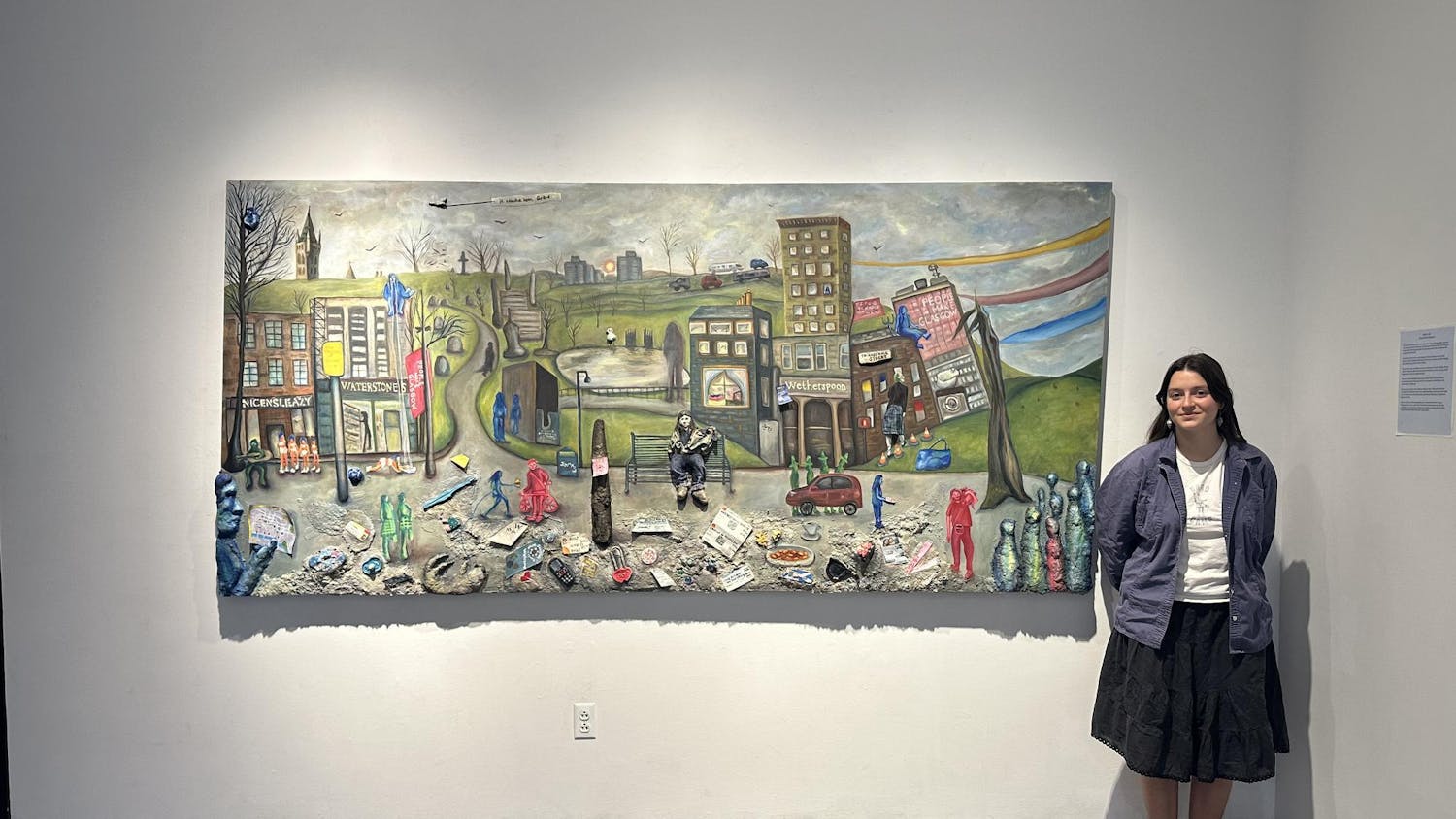Running this weekend in Leeds Theater, Sock and Buskin's "Doris to Darlene: A Cautionary Valentine," by Jordan Harrison MFA '03, tells the story of how three characters from three different time periods relate to music and, through this relationship, find love.
The play begins with the three main characters — King Ludwig II, Doris and the Young Man — listening to music and dancing together. In a dynamic scene without dialogue, Ludwig plays music by Richard Wagner on a record player, only to be interrupted by Doris trying out new pop songs on the Young Man's iPod, until the three come together in a choreographed dance to Mika's "We Are Golden." This opening scene dramatizes the process of giving in to music and overcoming inhibitions, a motif that runs through the rest of the play.
Doris Unsworth is a 16-year old girl who lives with her grandmother and dreams of being a singer. She skips school one day to audition for big-shot music producer Vic Watts — and as it turns out, he likes her sound.
Discontented with Doris's name, however, Vic dubs her "Darlene Dupont" because, after all, "the public wants alliteration." In addition to a new moniker, Vic gives Darlene a couple of cheesy number-one hits, a few golden records and a diamond ring that loses its luster all too soon.
In her bubblegum-pink dress and shoes, Lauren Neal '11 smiles and blushes to demonstrate Doris's cutesy innocence as a 16-year-old. As Watts, Sean Patrick McGowan '12 struts about the stage in aviators and leather boots, convincing as a music producer driven by the relentless pursuit of profit.
In another of the play's plot lines, King Ludwig II, also referred to as the "Mad King" of Bavaria, has an ear for Wagner's operas and an eye for Wagner himself. The members of the court doubt their king's sanity and ability to rule as Ludwig falls more in love with the opera composer. The two have a playful yet unstable relationship that "borders on immoderacy." Unable to realize his fantasies, Ludwig attempts to find solace in the arms of another, and Wagner loses his musical inspiration.
As Wagner and Ludwig, Gordon Sayre '12 and Elizabeth Rothman '11 make for complementary opposites. Sayre speaks with the loud, booming voice that communicates the self-possession of a famous composer, while the femininity Rothman brings to this pants role highlights Ludwig's boyishness and naivete.
Threaded through all of this is the story of the Young Man (a brilliantly endearing Ben Freeman '13), a confused and socially awkward high school student who listens to Darlene's 1960's hits, contemporary pop songs and Wagner's famous "Liebestod," having studied the aria in school.
Initially alarmed by the new music appreciation teacher, a stern older man with glasses and argyle socks, the Young Man finds that Mr. Campani (Mark Brown II '09.5, appropriately arrogant and stuffy) is just like him — flamboyant, a music lover, queer. Although he has a difficult time accepting himself in the harsh and judgmental world of high school ("I don't like myself here"), the Young Man takes comfort in the stories of Doris and Ludwig and uses their experiences to come to terms with himself and his sexuality.
In a clever production of Harrison's play, director Chris Tyler '10 and his cast of six successfully convey the thoughts and feelings of their characters. With a script that stays very much within the minds of the characters — each person referring to himself in the third person, for example — the actors externalize the emotions behind the words through stylized bodily movement and facial expressions that imbue the lines with a dynamism they might otherwise lack.
As Tyler writes in his director's note, the play crosses space and time and blurs the line between reality and fantasy to "unite the three elemental couples" and "examine the paradoxical nature of romantic experience." The stories all suggest that the process of falling in and quickly out of love is shared across different eras, as transcendent as music.
"Doris to Darlene" runs tonight and Saturday at 8 p.m. and Sunday at 2 p.m. in Leeds Theater.
ADVERTISEMENT




